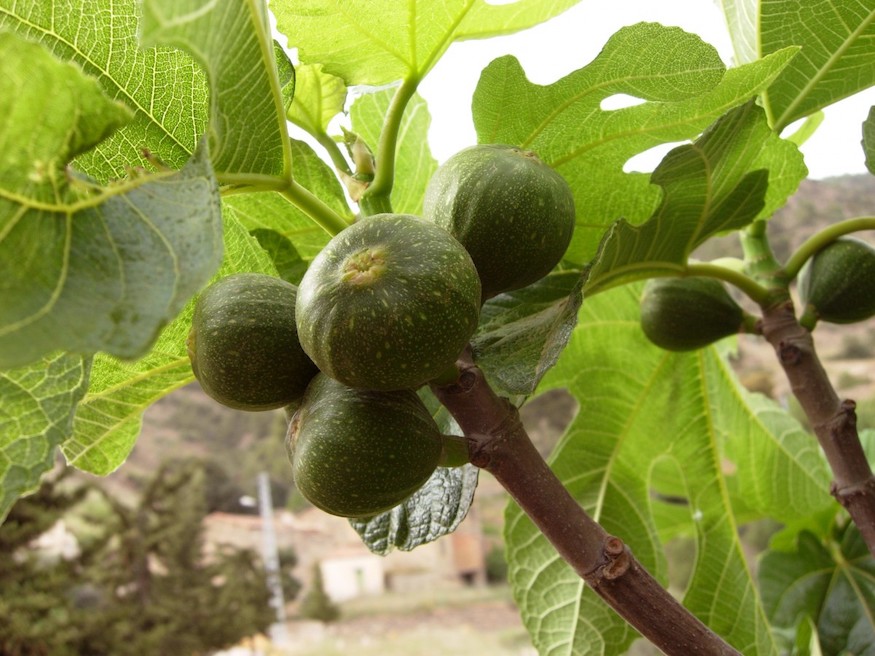“Look at the Fig Tree”
“Look at the fig tree and all the trees” (Luke 21:29).
When Jesus was teaching His disciples about the signs of His coming and the ‘end of the age’, He explained that many difficult things would happen in the world and the church before He comes again. Amongst other things, ‘nations will rise against nations’ and ‘kingdoms against kingdoms’. It is remarkable how often Jesus refers to the nations when describing the last days in Luke 21 and Matthew 24. It seems He wanted to emphasise the prominent role the nations will take in the last days.
In Luke’s account of this conversation, in Luke 21, he records that Jesus told His disciples to “look at the fig tree and all the trees”. In the Old Testament, trees were symbolic of the nations. Jesus was saying that the greatest sign of His coming will be the trees sprouting their leaves – nations coming to life and bearing fruit after the long winter months.
This suggests a period in which the nations of the world come to life and become mature.
The most important tree, however, will be the fig tree that will become tender and spread its leaves. The fig tree symbolised the national identity of Israel. The fig tree coming to life, therefore, represented the nation of Israel being restored. Jesus’ words no doubt reminded His disciples of His prophetic act earlier in the week, when he encountered a fig tree that did not bear fruit and declared: “May you never bear fruit again!” (Matthew 21:19). At the end of days, the fig tree that withered and was cursed, will come to life.
We are living in the generation that sees the nations coming to life. It is exactly 100 years since World War I ended – a war in which millions of young soldiers were killed in the trenches in Europe and the Middle East. Many more were injured, and societies were destroyed. In many ways WWI was a watershed, that ushered in a new and bloody era in world history. But it also laid the foundations for the modern community of nations as we know them, as well as the revival of the fig tree.
The Allied Powers (Great Britain, France, Italy, United States and Japan) had taken over control of the whole of the Middle East, southern Europe and northern Africa following the collapse of the Austro-Hungarian and Ottoman Turkish Ottoman Empires. At the Paris Peace Conference, they decided to establish the League of Nations, and help the nations that had been under foreign occupation to achieve self-determination. This resulted ultimately in the creation during the course of the 20th century of modern states in Africa such as Rwanda and Cameroon, in the Pacific Islands such as Nauru and Samoa, and in the Middle East, Iraq, Jordan, Syria, Lebanon and Israel.
Most importantly, the League of Nations laid the foundation for the creation, in 1948, of the Jewish State of Israel. In 1920, the nations adopted the Balfour Declaration, which spoke of the reconstitution of the Jewish homeland – thereby fulfilling Jesus’ prophecy about the fig tree.
Before that decision could be properly executed, however, one final attempt was made to destroy the fig tree completely. It nearly succeeded, as over half the Jewish population of Europe was brutally extinguished in the Shoah.
After WWII, it was time to create real and lasting peace between the nations. The next few years saw the birth of the United Nations, and the emergence of many new nations from the colonial regimes of the European powers in Africa, Asia and the Americas. There were 51 member states of the UN on its founding in 1945; the vast majority of the current 193 member states of the United Nations were created during the last 70 years.
These nations are organised as sovereign states under international law. The modern nation-state, however, was essentially a European idea intended to achieve the balance of powers between competing kingdoms in the 17th and 18th centuries. It is not necessarily the most appropriate way of organising infant nations. Many states today are marked by a lack of democratic institutions, as well as internal chaos and external conflicts with their neighbours. Over recent decades certain religions and ideologies have sought to impose their ideological or military will on the minority. Many are now rejecting the notions of sovereignty and nationalism as outdated, to be replaced by multilateral structures in the hope that this will lead to peace and security. This is of course an illusion, for it ignores man’s fallen nature. The stage is clearly being set for a “strong man” to emerge, who will use these new global structures and systems to unite the dominant religions and ideologies in the promise of establishing a new world order.
At the centre of all of this is the miraculous revival of the fig tree – the re-emergence of the Jewish nation, their restoration to the land and the establishment of the city of Jerusalem.






